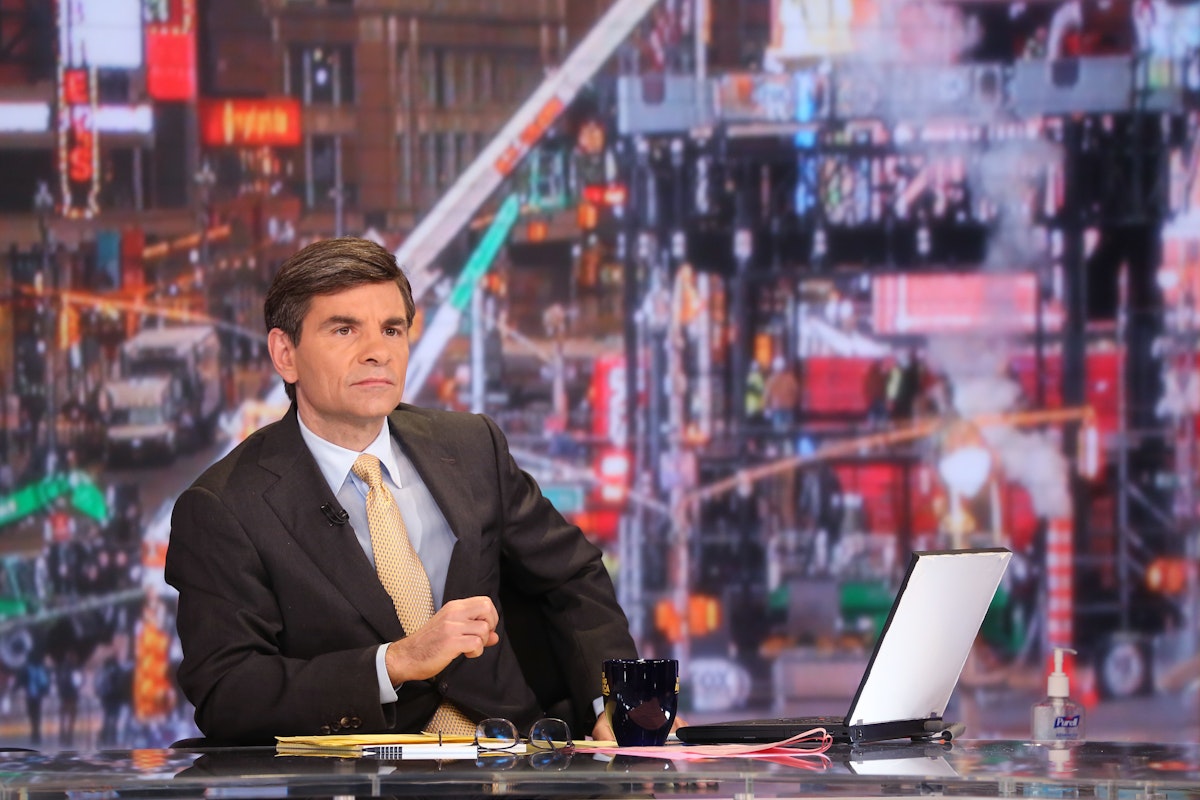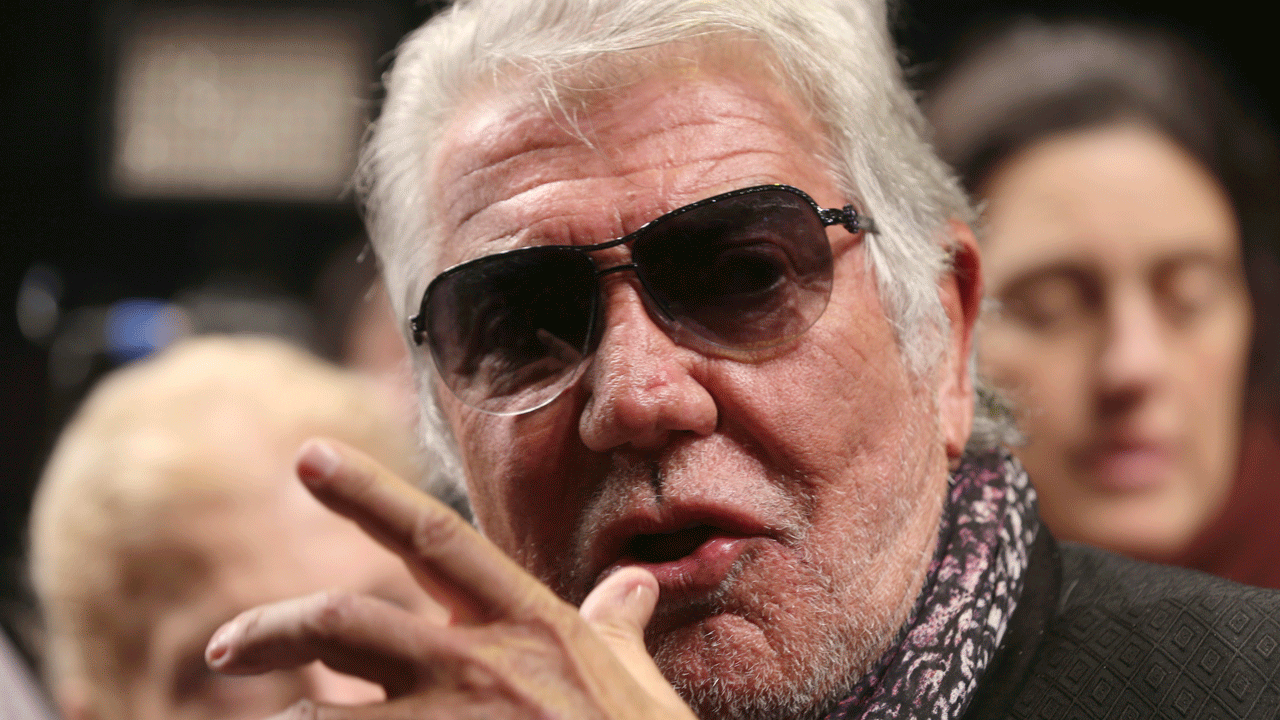Trump Might Have a Winnable Defamation Case Against ABC News
Former President Donald Trump has filed yet another defamation lawsuit against a news outlet. This time, the target is ABC News and anchor George Stephanopoulos. Trump claimed in a court filing on Tuesday that Stephanopoulos defamed him by repeatedly stating that he had been found “liable for rape” by a Manhattan jury last year. Trump’s defamation lawsuits often fare poorly in court. Since he kicked off his political career, he has made several such forays against multiple news organizations, all of which have been unsuccessful. Just last month, Trump paid The New York Times roughly $392,000 in legal fees after an unsuccessful defamation case against it. Trump still faces some major hurdles before he could prevail against ABC and Stephanopoulos. But a win for the journalists in this instance is less certain than one might guess based on the former president’s track record.The dispute in this case arises from Stephanopoulos’s interview with South Carolina Representative Nancy Mace on March 10, in which he questioned her at length about her decision to endorse Trump in the 2024 presidential election. He opened with a clip from 2019 where Mace described her own experience with sexual assault before announcing her decision to run for Congress.“You endorsed Donald Trump for president,” Stephanopoulos said. “Judges in two separate juries [sic] have found him liable for rape and for defaming a victim of that rape. How do you square your endorsement of Donald Trump with the testimony you just saw?” Here, he was referring to Trump’s legal battles with E. Jean Carroll, the writer who accused him of rape in 2019.Mace took issue with the question and its framing. “I didn’t come forward because of that judgment and shame that I felt,” she told Stephanopoulos. “And it’s a shame that you will never feel, George, and I’m not going to sit here on your show and be asked a question meant to shame me about another potential rape victim. I’m not going to do that.”The interview, which continued in this vein for some time, went viral on social media. After it concluded, Mace criticized ABC News and Stephanopoulos for how they questioned her; she vowed that she would not appear on the network again. On Tuesday, Trump’s lawyers announced that they had filed a defamation lawsuit against the network and Stephanopoulos for his questions during the interview.“Given Stephanopoulos’s knowledge of the actual verdicts in Carroll I and Carroll II,” the complaint said, referring to the two lawsuits between Trump and Carroll, “and given his vast experience as a journalist, his repeated statements that [Trump] was found liable for rape were false, intentional, malicious, and designed to cause harm.”Carroll first publicly described her encounter with Trump in a June 2019 article in New York magazine. According to Carroll, she randomly encountered Trump in a Bergdorf Goodman department store in Manhattan in late 1995 or early 1996. While helping him buy a gift for a woman he knew, they ended up in the store’s lingerie section and joked about her trying some of it on. They then found themselves in a dressing room, where Carroll said that Trump held her down and raped her.After her story was published, Trump denied the allegations. He told The Hill that Carroll was “totally lying,” that he had never met her, and that she was “not my type.” (A photograph later surfaced of the two of them together at an event in the late 1980s.) She responded by filing a defamation lawsuit against Trump in November 2019 for maligning her character.In May of last year, a Manhattan jury ruled in Carroll’s favor on most of her claims and awarded her $5 million in damages. Their decision was not exactly a surprise: Trump and his legal team mounted only a bare-bones defense on the substance of her allegations. Though he raised numerous procedural objections to the case, Trump also called no witnesses and did not appear in court for the proceedings.But the jury also threw a wrench into the gears that has colored discussion of the incident ever since its decision was announced. On the verdict form, jurors were asked if Carroll had proven by a preponderance of the evidence that Trump had sexually abused her and if she was injured as a result of his actions. The jury said “yes” to both. But on the separate question of whether Trump had raped her, the jury marked “no.” Trump’s lawyers cited that decision as a partial victory or even as an exoneration of sorts, even though it made no practical difference in the outcome.Jurors were not obligated to explain why they only found Trump liable for the lesser offense. But the answer appears to lie with how New York’s criminal code defines rape and sexual assault. After the jury handed down its verdict, Trump asked the court to reconsider, among other things, the damages that Carroll was awarded. He argued that because the jury had declined to find him liable for rape, the $2 million portion of the award for battery was excessive.Kapl

Former President Donald Trump has filed yet another defamation lawsuit against a news outlet. This time, the target is ABC News and anchor George Stephanopoulos. Trump claimed in a court filing on Tuesday that Stephanopoulos defamed him by repeatedly stating that he had been found “liable for rape” by a Manhattan jury last year.
Trump’s defamation lawsuits often fare poorly in court. Since he kicked off his political career, he has made several such forays against multiple news organizations, all of which have been unsuccessful. Just last month, Trump paid The New York Times roughly $392,000 in legal fees after an unsuccessful defamation case against it. Trump still faces some major hurdles before he could prevail against ABC and Stephanopoulos. But a win for the journalists in this instance is less certain than one might guess based on the former president’s track record.
The dispute in this case arises from Stephanopoulos’s interview with South Carolina Representative Nancy Mace on March 10, in which he questioned her at length about her decision to endorse Trump in the 2024 presidential election. He opened with a clip from 2019 where Mace described her own experience with sexual assault before announcing her decision to run for Congress.
“You endorsed Donald Trump for president,” Stephanopoulos said. “Judges in two separate juries [sic] have found him liable for rape and for defaming a victim of that rape. How do you square your endorsement of Donald Trump with the testimony you just saw?” Here, he was referring to Trump’s legal battles with E. Jean Carroll, the writer who accused him of rape in 2019.
Mace took issue with the question and its framing. “I didn’t come forward because of that judgment and shame that I felt,” she told Stephanopoulos. “And it’s a shame that you will never feel, George, and I’m not going to sit here on your show and be asked a question meant to shame me about another potential rape victim. I’m not going to do that.”
The interview, which continued in this vein for some time, went viral on social media. After it concluded, Mace criticized ABC News and Stephanopoulos for how they questioned her; she vowed that she would not appear on the network again. On Tuesday, Trump’s lawyers announced that they had filed a defamation lawsuit against the network and Stephanopoulos for his questions during the interview.
“Given Stephanopoulos’s knowledge of the actual verdicts in Carroll I and Carroll II,” the complaint said, referring to the two lawsuits between Trump and Carroll, “and given his vast experience as a journalist, his repeated statements that [Trump] was found liable for rape were false, intentional, malicious, and designed to cause harm.”
Carroll first publicly described her encounter with Trump in a June 2019 article in New York magazine. According to Carroll, she randomly encountered Trump in a Bergdorf Goodman department store in Manhattan in late 1995 or early 1996. While helping him buy a gift for a woman he knew, they ended up in the store’s lingerie section and joked about her trying some of it on. They then found themselves in a dressing room, where Carroll said that Trump held her down and raped her.
After her story was published, Trump denied the allegations. He told The Hill that Carroll was “totally lying,” that he had never met her, and that she was “not my type.” (A photograph later surfaced of the two of them together at an event in the late 1980s.) She responded by filing a defamation lawsuit against Trump in November 2019 for maligning her character.
In May of last year, a Manhattan jury ruled in Carroll’s favor on most of her claims and awarded her $5 million in damages. Their decision was not exactly a surprise: Trump and his legal team mounted only a bare-bones defense on the substance of her allegations. Though he raised numerous procedural objections to the case, Trump also called no witnesses and did not appear in court for the proceedings.
But the jury also threw a wrench into the gears that has colored discussion of the incident ever since its decision was announced. On the verdict form, jurors were asked if Carroll had proven by a preponderance of the evidence that Trump had sexually abused her and if she was injured as a result of his actions. The jury said “yes” to both. But on the separate question of whether Trump had raped her, the jury marked “no.” Trump’s lawyers cited that decision as a partial victory or even as an exoneration of sorts, even though it made no practical difference in the outcome.
Jurors were not obligated to explain why they only found Trump liable for the lesser offense. But the answer appears to lie with how New York’s criminal code defines rape and sexual assault. After the jury handed down its verdict, Trump asked the court to reconsider, among other things, the damages that Carroll was awarded. He argued that because the jury had declined to find him liable for rape, the $2 million portion of the award for battery was excessive.
Kaplan rejected that request. He noted in his ruling that New York’s legal definition of “rape” does not correspond with the popular understanding of it. Kaplan pointed to a variety of definitions, ranging from legal dictionaries to federal crime statistics to the Uniform Code of Military Justice, that define the term more expansively than the state’s own criminal statutes.
“The finding that Ms. Carroll failed to prove that she was ‘raped’ within the meaning of the New York Penal Law does not mean that she failed to prove that Mr. Trump ‘raped’ her as many people commonly understand the word ‘rape,’” Kaplan wrote. “Indeed, as the evidence at trial recounted below makes clear, the jury found that Mr. Trump in fact did exactly that.”
Where Stephanopoulos may have gone astray, however, is by asserting multiple times that Trump had been found “liable for rape.” It would be one thing if he had said that Trump had “allegedly committed rape” against Carroll in the mid-1990s, or if he had said that the jury had found Trump liable for sexual assault for that encounter, which the jury did.
But whether Trump was found “liable for rape” is a different matter. Stephanopoulos was not describing what Trump did or what Carroll did. He was describing what the jury did. And while the jury rendered a verdict against Trump on every other aspect of Carroll’s complaint, it quite explicitly did not find Trump liable for rape.
Trump’s lawyers made the same point in their complaint. “As to the first count for battery, the jury was expressly asked to render a determination as to whether [Trump] raped Carroll,” they argued. “The verdict form is clear—the jury determined that Carroll failed to prove her allegation of rape and found [Trump] not liable as to that allegation.”
In countries with weaker protections for free speech and stricter defamation laws, Stephanopoulos might be in serious trouble just for this. But the First Amendment makes it more difficult for Trump to prevail. The legal standard for defamation claims, as articulated by the Supreme Court, is “actual malice.” Simply being wrong is not enough; defamation plaintiffs must show that the defendant acted with “reckless disregard for the truth” if they want to prevail.
Trump’s lawyers try to overcome that hurdle in two ways. First, they point to the overall tenor of Stephanopoulos’s interview with Mace, arguing that the “intensity and persistence of the questioning” showed that he “maliciously intended to convince his viewers of a falsity.” They also found an earlier interview that Stephanopoulos conducted with Carroll herself, where he asked her about her reaction when the jurors said they had declined to find him liable for rape. That interview, the complaint said, showed that Stephanopoulos was aware of the jury’s actual verdict.
Whether this is enough to overcome the “actual malice” threshold is unclear. A federal judge may ultimately conclude that the interview questions did not reach that level, given the context of Trump’s history of sexual assault allegations and Kaplan’s own ruling on the jury’s use of the term “rape.” But it could end up being a much closer call than any of Trump’s past attempts to pin a defamation claim on the media.



